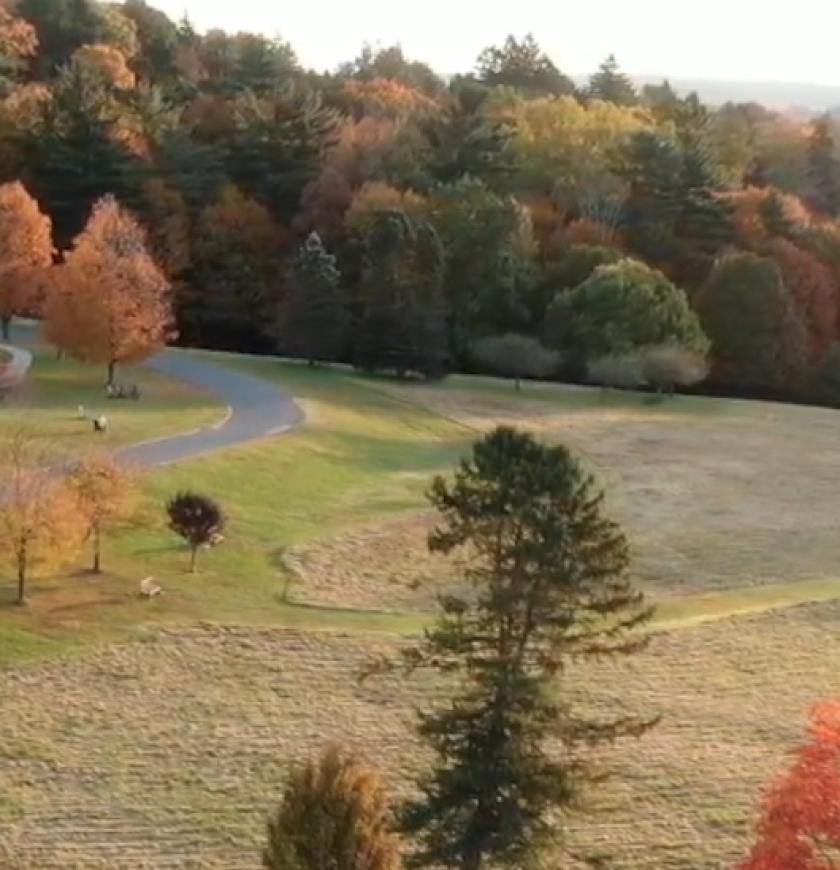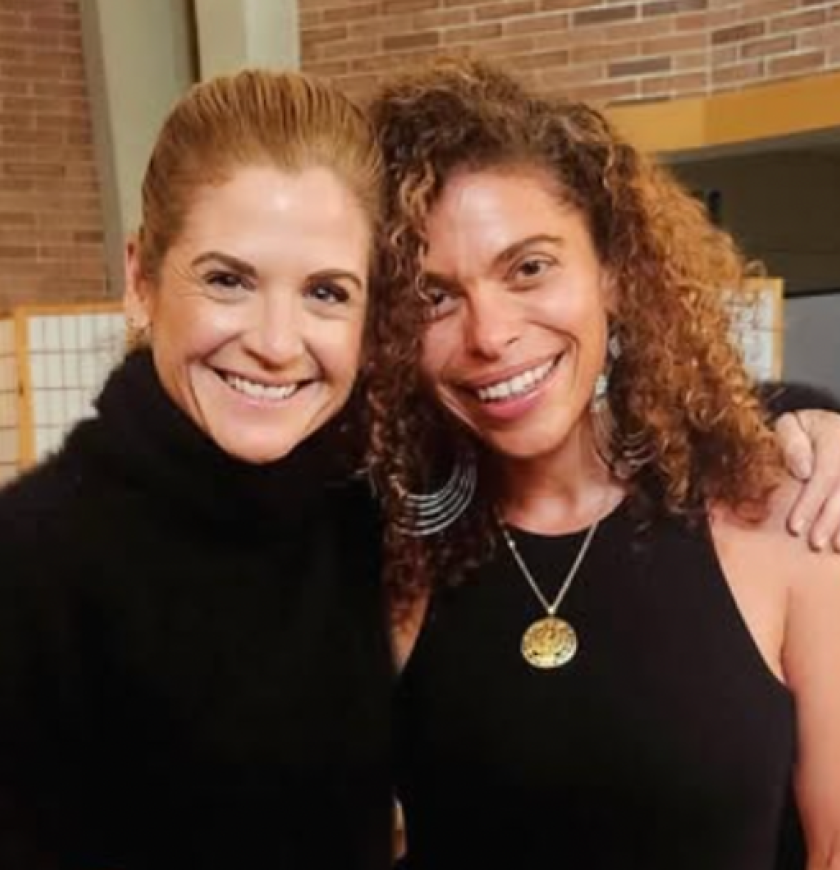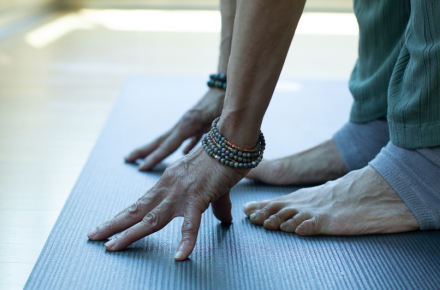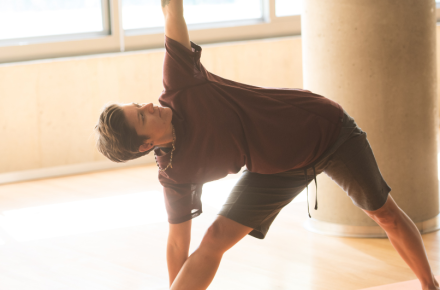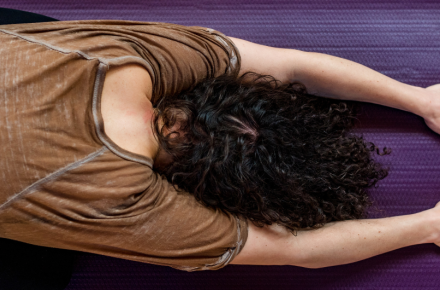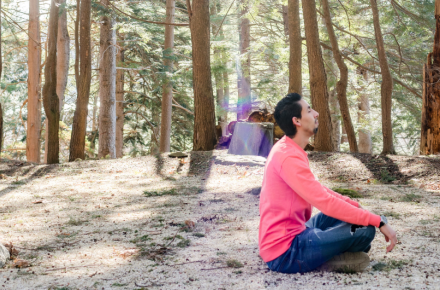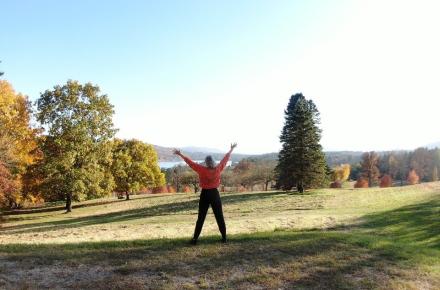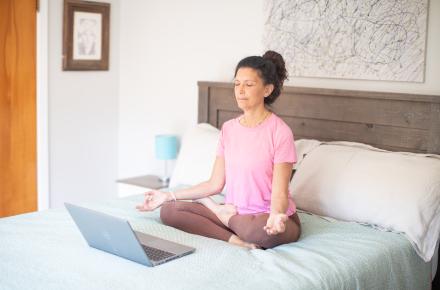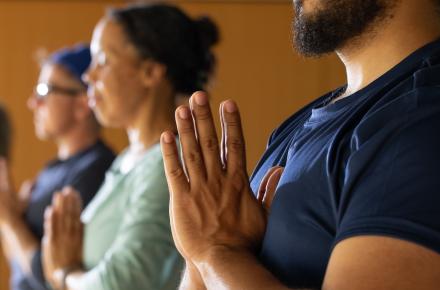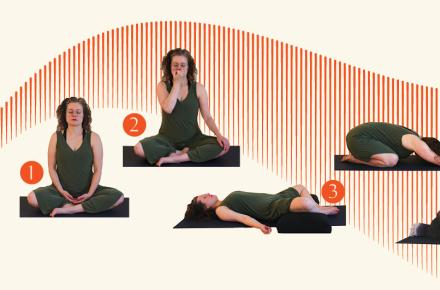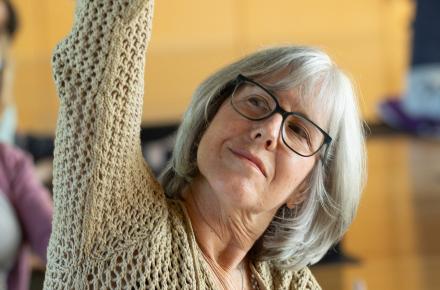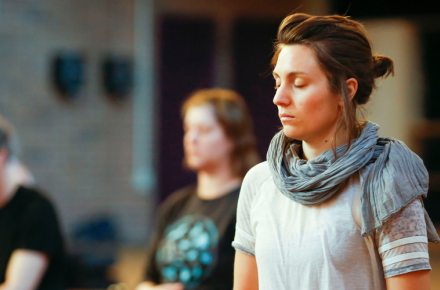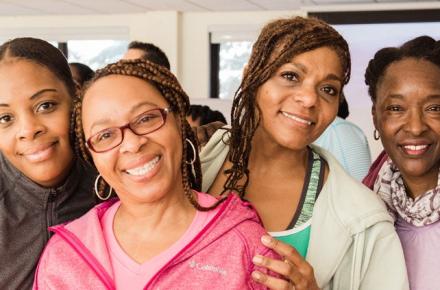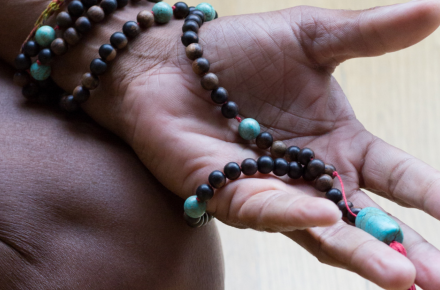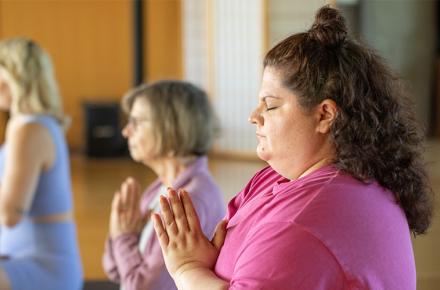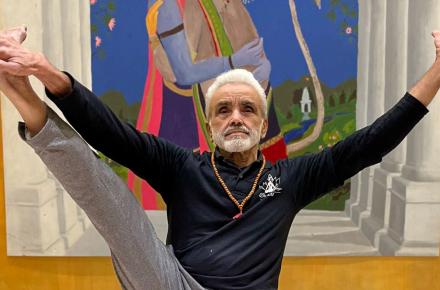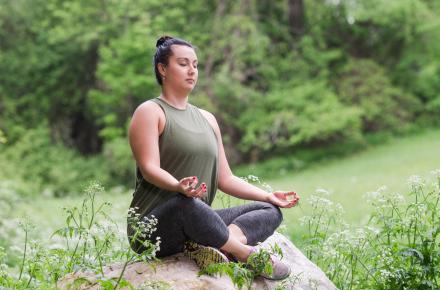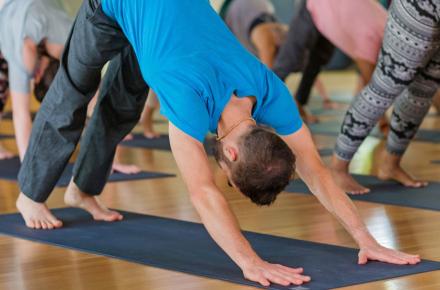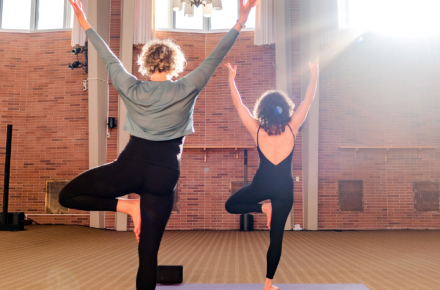Embracing Beginner’s Mind
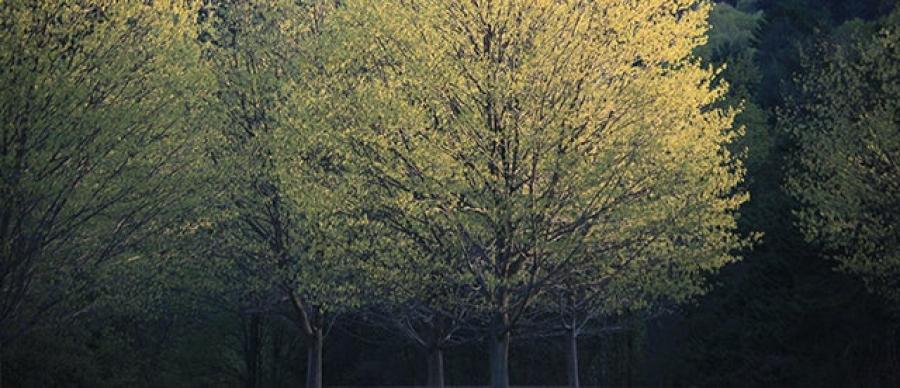
by Janet Arnold-Grych
One of my favorite stories about yogic luminary B.K.S. Iyengar is that, decades into teaching and practicing, he continued to tell his students that he hadn’t yet perfected Mountain pose. Mountain pose, for a man who did headstands into his 80s, was probably not physically challenging. But Iyengar knew that asserting mastery meant closing the door on growth. There is a sacredness in asking, “What can I learn?” from a pose that one has practiced thousands of times.
In yoga, we’re often told to approach poses with beginner’s mind—to seek spaciousness or find the nuances that allow us to discover more about a pose and our relationship to it. I’m as guilty as anyone of losing sight of that and focusing simply on completing the flow, hitting a pose, or making it to Savasana. That’s when yoga becomes less about “skillfulness in action” and more about calisthenics.
Beginner’s mind is tough enough in yoga class, let alone embracing it off the mat. An open state of inquiry can be no match for the larger voices of our everyday expectations and demands. This is compounded by the way in which we’re wired to habituate—to quickly identify, label, and move on. We judge and then close the door, applauding ourselves the faster we do this. As we fuel the cycle, it branches out. We begin to judge before we even truly experience, leaving us only a partial picture, a partial experience. As Steven Leonard, Kripalu faculty member and founder of Freestyle Meditation, puts it, “The container in which we allow ourselves to experience life often gets smaller and smaller, until we can’t move without bumping up against a wall.”
Labeling experiences and people—good, bad, simple, difficult—ensures that we’ll run into that wall. But life is rarely so simple as to merit one label. We need only look at ourselves to verify how often change happens. In fact, Buddhist doctrine tells us that everything is in a constant state of flux; everything is impermanent. Beginner’s mind starts with that recognition.
Steven says, “To truly embrace beginner’s mind, we must soften around our tendency to assume. We’re always assuming what our experiences will be, assuming we know what we like and dislike, assuming our view is the same as it was yesterday. To assume that anything stays the same is to be caught in delusion.” When freed from the fetters of assumption and judgment, our experiences become truer reflections of what is. And what is in one moment is not exactly the same in another. The space between is where learning and growth occur.
There are times when choosing efficiency, opting to roll through a to-do list, or doing “yoga calisthenics” is what we need. But, if checking the box becomes our default, we lose the opportunity to experience people, situations, and even ourselves in new and more expansive ways. Steven asks the underlying question, “At what point does habituation turn from enhancing efficiency to binding? Is there space for your habits to adapt to your changing body, mind, environment, and life? This is the truly important question: To what degree does creating habits help us and when does it limit us? It takes a beginner’s mind to become aware of this difference. It really all comes down to our intentions and motivation.”
We all have behaviors and habits grounded in assumptions and past experiences. But since everything is constantly shifting and evolving, what might you find if your intention was to take a beginner’s mind instead? Would you treat people differently? Make different choices? Acknowledge more often your opportunities for growth?
Beginner’s mind, like everything else, is a choice. When we choose to turn down our knee-jerk assumptions, we may find a spaciousness that we didn’t know existed. Across decades of practice, Iyengar chose to remain open to what Mountain pose might hold for him.
"The practice is very simple: See things as they are,” says Steven. "The more you leave space for change, the easier it gets to see that change as well as the potential for it.”
Janet Arnold-Grych is a yoga teacher and writer whose work has been published in Elephant Journal, Huffington Post, Third Coast Digest, and other outlets. She’s also a marketing manager for a Fortune 200 company.
© Kripalu Center for Yoga & Health. All rights reserved. To request permission to reprint, please e-mail editor@kripalu.org.


